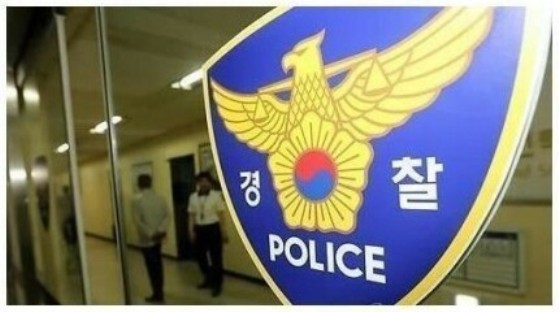 |
|
The emblem of the National Police Agency. Critics are concerned that increases in intelligence gathering authority could lead to abuse.
|
Critics contend that police have used legal loopholes to abuse intelligence gathering powers
A predicted increase in the police’s investigative authority, including anti-communist investigation duties taken over from the National Intelligence Service (NIS) and new duties currently being coordinated with prosecutors, is raising fears of consequences including excessive monitoring of citizens and targeted investigations if current indiscriminate intelligence gathering organizations remain in place. On Jan. 5, a commission on police reform established a new subcommittee on police intelligence division improvements to discuss the matter. The Hankyoreh’s investigation on Jan. 12 into the intelligence police reform plan devised by the National Police Agency showed that intelligence divisions at several police stations had gathered information on various areas of society in addition to investigation-related criminal information, assigning it labels such as “policy intelligence” and “situational intelligence.” “‘Policy intelligence’ means scrutinizing public opinion on government policies as a form of preventive security information, while ‘situational intelligence’ means intelligence to maintain security in the event of dangerous situations resulting from assemblies, demonstrations, and so forth,” an NPA source explained. As bases for their activities, police are citing Article 3 of the Police Act, which lists “collection of information on public security” as one of the duties of the national police, and Article 14 of a 1991 presidential decree on the organization of the NPA and related institutions, which lists intelligence bureau duties as including the collection of “security information on areas including politics, economy, labor, society, schools, and religion.” But critics contend the legal basis is inadequate for the police to scrutinize the activities and opinions of members of the public in addition to crime-related information in the interests of maintaining security. Seo Bo-hak, a Kyung Hee University law professor and member of the police reform commission, said the Police Act provision in question “merely provides a list of police duties,” adding that “separate regulations are requested for the delegation of powers to enforce the law.” “The presidential decree explaining the intelligence bureau’s role also needs to be revised into a law ratified by the National Assembly,” Seo said. A number of cases have shown police station intelligence divisions using loopholes in the law to abuse their intelligence gathering powers. “I once reported on the recent activities of major regional figures who had met with the police station chief,” a police officer in one intelligence division said in an interview with the Hankyoreh. “The station chief would immediately get upset if the reports weren’t made, and it’s tough to say no to orders from someone who holds human resources authority,” the officer said. Another police officer affiliated with an intelligence division reported “calling up a university recently to ask about opinions on a Ministry of Education policy measure.” “They asked why the police were looking into something like that, and I didn’t have anything I could really say to explain it, so I dodged the question,” the officer recalled. Sewol victims’ relatives were tailed by police Some of the most notorious cases involving police gathering of information include the Ansan Police Station intelligence division’s controversial tailing of demonstrating relatives of Sewol ferry sinking victims in May 2014, and the June 2008 case of an intelligence division detective visiting an elementary school principal to inquire about teachers participating in candlelight demonstrations against US beef imports. The police maintain that abuses of intelligence gathering powers can be prevented with management and controls. “In response to people saying that some intelligence divisions have been indiscriminate about gathering information, we plan to draw up a list of intelligence that can be gathered, which we intend to manage strictly with stiffer punishments for failure to comply,” said Song Min-heon, an information review officer with the NPA’s intelligence bureau. But with police destroying collected intelligence after reading it as a rule, it remains impossible for outsiders to know what kind of intelligence has been collected and reported up the line – leaving serious question marks surrounding the efficacy of measures to control abuses of intelligence gathering authority. Critics want a massive overhaul of intelligence gathering practices For this reason, some are arguing the police intelligence bureaus are in need of a massive overhaul rather than guidelines to stop indiscriminate intelligence gathering. Attorney and police reform commission member Choi Kang-wook said the current divisions “need to be abolished and redeveloped into organizations focusing on gathering of crime-related information.” Seo Bo-hak worried, “If the intelligence divisions’ current information functions are not distributed on a case-by-cases to the public order, investigation, and security bureaus, we could end up with a ‘super-panopticon society’ where the police constantly monitor members of the public for targeted investigations.” As of Nov. 2017, the NPA had a workforce of 3,487 intelligence police officers nationwide. By Heo Jae-hyun, staff reporter Please direct questions or comments to [english@hani.co.kr]






